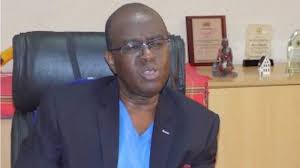The Nigeria Employers’ Consultative Association (NECA), has raised the alarm over Nigeria’s mounting debt burden, expressing fear that this could have a negative effect on the developmental capacity of Nigeria if not urgently tackled.
The Association noted that despite the argument by government’s financial managers that the rate of increase is within a manageable limit, however, the reality indicated that the revenue-to-debt ratio is unsustainable, and portends serious danger to the future generation.
The Director-General of NECA, Timothy Olawale, who was reacting to the figures contained in the recently released third quarter report of the Debt Management Office (DMO) and the 2019 budget assumptions, said the figures showed that the Federal Government’s domestic debt profile rose to N15.814 trillion in September 2018, from N15.629 trillion in June, indicating about 1.19 per cent increase.
He explained that the figure became more worrisome when, looking at the total public debt stock, comprising the external and domestic debt of the FGN, the 36 states, and the FCT hitting $73.208 billion (N22.38 trillion) recorded in June 2018.
Olawale argued that while the effect of the increasing debt may not be immediate, in totality, it could be catastrophic in the long term with a chunk of revenue consumed by debt servicing to the detriment of infrastructural development.
According to him, this, sadly, is the current reality as N2.140 trillion from the N8.8 trillion proposed 2019 budget, has been earmarked for debt servicing, representing about 25 per cent of the total budget allocation.
While discussing the implication of government’s huge borrowing in the domestic market, he said: “The size of government borrowing in the domestic financial market also continues to be a major source of concern as this has in no small measure, affected the chances of the real sector to access funding at a reasonable cost.”
Proposing a way out, he advised that the federal and state governments, as a matter of urgency, must take deliberate steps aimed at cutting the cost of governance and recurrent expenditure.
Olawale also urged the government to start paying serious attention to workable investment schemes, collaborating strongly with the private sector, which is the engine room for economic growth.
He added that government has to recognise the important role of the private sector in building a robust economy, as oil revenue alone is not enough to place Nigeria on the path of sustainable development. The Guardian reports that the NECA-boss insists government must commit to facilitating a favourable environment with policies that will attract private investors.


